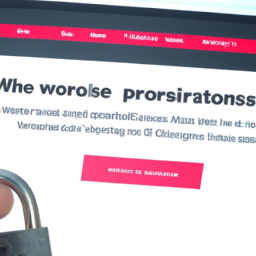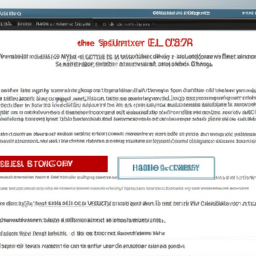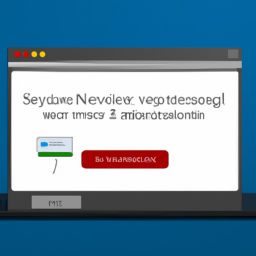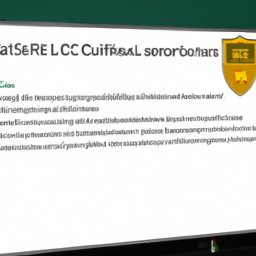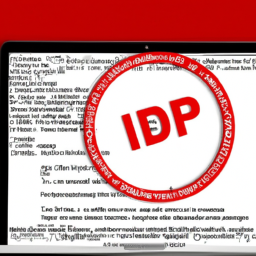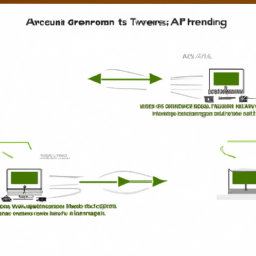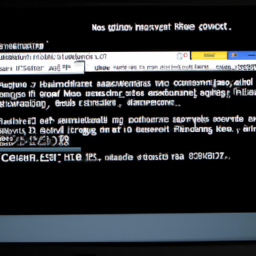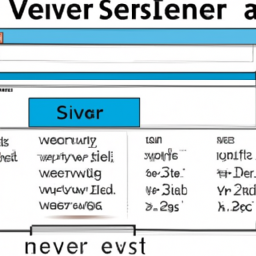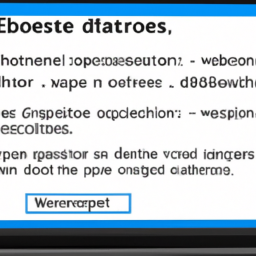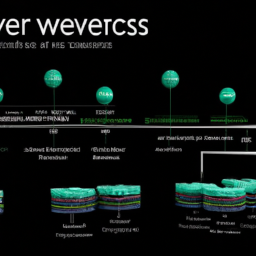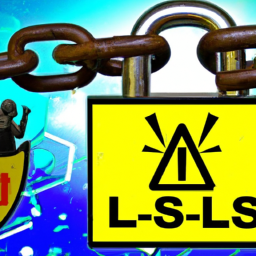In the vast digital landscape of web hosting, where information travels at lightning speed, your email delivery can make or break your online presence.
Like a conductor leading an orchestra, the impact of IP reputation sets the tempo for successful communication. Just as a renowned maestro commands respect and attention, your IP reputation determines whether your emails will reach their intended recipients or be lost in the abyss of spam filters.
But what exactly is IP reputation? It is the virtual report card that internet service providers (ISPs) use to assess the trustworthiness of your email sending practices. ISPs rely on this reputation to determine whether your emails should be welcomed into the inboxes of users or be banished to the dreaded spam folder.
In this dog-eat-dog world of digital communication, factors such as email volume, content quality, and user engagement all play a role in shaping your IP reputation.
In this article, we will delve into the intricacies of IP reputation and explore the factors that can influence it. We will also equip you with strategies to improve your IP reputation, allowing you to build a positive sender reputation and ensure your emails make a lasting impact.
So, tighten your virtual baton and get ready to conduct a symphony of successful email delivery in the realm of web hosting.
Key Takeaways
- IP reputation is crucial for determining email deliverability in web hosting
- Implementing email authentication protocols like SPF, DKIM, and DMARC improves inbox placement and reduces the chances of emails being blocked or sent to spam folders
- Consistently monitoring and optimizing IP reputation leads to higher email performance and engagement rates
- Building a positive IP reputation fosters trust with email service providers and ensures that emails reach their intended recipients’ inboxes.
Understanding IP Reputation and Its Importance
Understanding the significance of IP reputation and its impact on email delivery is crucial for web hosting providers. As a provider, you need to prioritize email security to ensure that your clients’ emails are delivered successfully and not marked as spam.
IP reputation plays a significant role in email delivery because it determines the trustworthiness of your IP address. A good IP reputation enhances your online reputation management, as it indicates that your emails are legitimate and trustworthy. On the other hand, a poor IP reputation can negatively affect your email delivery rates and may result in your emails being blocked or sent to the spam folder.
Therefore, it is essential to monitor and maintain a positive IP reputation to guarantee reliable email delivery. Moving forward, let’s explore the factors that affect IP reputation and how they can be managed effectively.
Factors That Affect IP Reputation
To grasp the significance of factors that influence your email’s successful arrival in someone’s inbox, envision a bustling marketplace where your IP address is like the aroma of a freshly baked pie, either enticing or repelling the email gatekeepers. IP reputation management plays a crucial role in preventing IP blacklisting, which can greatly impact your email deliverability. Various factors contribute to your IP reputation, and understanding them is vital for your email marketing success. Take a look at the table below for a comprehensive overview:
| Factors Affecting IP Reputation | Impact |
|---|---|
| Sending History | High |
| Email Content | Medium |
| User Complaints | High |
By actively managing these factors, you can maintain a positive IP reputation and ensure your emails reach their intended recipients. In the next section, we will discuss strategies to improve IP reputation and enhance your email delivery rates.
Strategies to Improve IP Reputation
To improve your IP reputation and ensure better email deliverability in web hosting, you should implement SPF, DKIM, and DMARC protocols. These authentication methods will help verify the authenticity of your emails and prevent them from being flagged as spam.
Additionally, it’s essential to regularly monitor and analyze email deliverability metrics to identify any issues and make necessary adjustments.
Lastly, effectively managing subscriber complaints and bounces is crucial to maintaining a good IP reputation and avoiding being blacklisted by email service providers.
Implementing SPF, DKIM, and DMARC
When implementing SPF, DKIM, and DMARC, you can imagine your email reputation blossoming like a beautiful garden, with every message carrying the fragrance of trust and authenticity.
Implementing these email authentication protocols brings numerous benefits to your web hosting. Firstly, it helps prevent email spoofing and phishing attacks by verifying the sender’s identity. This enhances your email deliverability and protects your recipients from fraudulent emails.
Additionally, implementing SPF, DKIM, and DMARC builds a positive reputation for your IP address, increasing the chances of your emails reaching the inbox instead of being marked as spam. However, there are challenges in implementing these protocols, such as correctly configuring the DNS records and ensuring compatibility across various email servers.
Nonetheless, with proper implementation and ongoing maintenance, the rewards outweigh the difficulties. As you delve into monitoring and analyzing email deliverability metrics, you’ll gain even more insights into enhancing your email reputation and ensuring successful email delivery.
Monitoring and Analyzing Email Deliverability Metrics
Tracking and analyzing email deliverability metrics provides valuable insights for improving the success of your email campaigns and ensuring your messages reach the intended recipients’ inboxes. By monitoring key metrics such as delivery rates, open rates, click-through rates, and bounce rates, you can identify areas for improvement and optimize your email delivery.
To help you better understand the significance of these metrics, consider the following table:
| Metric | Definition | Importance |
|---|---|---|
| Delivery Rate | The percentage of successfully delivered emails | Indicates the effectiveness of your email delivery system |
| Open Rate | The percentage of recipients who open your emails | Measures the effectiveness of your subject lines and sender reputation |
| Click-through Rate | The percentage of recipients who click on links within your emails | Reflects the relevance and engagement of your email content |
| Bounce Rate | The percentage of emails that were not delivered successfully | Indicates potential issues with your sender reputation or email list quality |
Analyzing these metrics allows you to pinpoint any problems, make data-driven decisions, and optimize your email delivery strategy. By understanding the impact of IP reputation on email delivery, you can effectively manage subscriber complaints and bounces to ensure maximum deliverability.
Managing Subscriber Complaints and Bounces
Now that you’ve learned about monitoring and analyzing email deliverability metrics, it’s time to focus on managing subscriber complaints and bounces. This crucial aspect of email delivery ensures that your emails are reaching the intended recipients and not causing any negative impact on your IP reputation.
By effectively managing subscriber complaints and bounces, you can maintain a positive subscriber engagement and improve your overall email deliverability. Subscriber complaints occur when recipients mark your emails as spam or report them as unwanted. It’s essential to promptly address these complaints and take necessary actions to prevent further complaints.
Bounces, on the other hand, happen when an email cannot be delivered to the recipient’s mailbox. By monitoring and reducing bounce rates, you can enhance your reputation management and increase the chances of your emails reaching the inbox.
In the next section, we’ll explore the importance of building a positive sender reputation and how it contributes to successful email delivery.
Building a Positive Sender Reputation
To establish a positive sender reputation, you need to consistently deliver high-quality content and engage with your email recipients on a regular basis. Building a positive sender reputation requires implementing effective email authentication methods and reputation management strategies. By utilizing authentication methods such as SPF, DKIM, and DMARC, you can ensure that your emails are not only delivered successfully but also verified as legitimate. Additionally, reputation management strategies involve actively monitoring and managing your sender reputation by regularly checking email deliverability metrics, addressing any issues promptly, and maintaining a low complaint and bounce rate. Remember, a positive sender reputation is crucial for maximizing email deliverability and ensuring that your messages reach your intended recipients. It sets the foundation for the subsequent section on the impact of IP reputation on email deliverability.
Impact of IP Reputation on Email Deliverability
When it comes to email deliverability, IP reputation plays a crucial role in determining whether your emails will end up in the inbox or the spam folder. A positive IP reputation ensures inbox placement and prevents your emails from being filtered out as spam.
Additionally, a good IP reputation leads to higher open and click-through rates, as recipients are more likely to trust and engage with emails coming from reputable senders.
Ultimately, maintaining a strong IP reputation improves your overall email performance and increases the likelihood of your messages reaching the intended recipients.
Inbox Placement and Spam Filtering
Surprise! Your email may end up in the dreaded spam folder, thanks to the magical world of inbox placement and spam filtering. When it comes to spam detection, email authentication plays a crucial role in determining whether your email is delivered to the inbox or filtered as spam.
Internet Service Providers (ISPs) and email service providers use complex algorithms to analyze various factors, such as IP reputation, sending domain, sender reputation, and email content, to make this decision.
By implementing email authentication protocols like SPF, DKIM, and DMARC, you can increase your chances of landing in the inbox. These protocols verify the authenticity of the email and reduce the likelihood of it being flagged as spam.
By improving your inbox placement, you can expect higher open and click-through rates, leading to greater email engagement and success in your web hosting endeavors.
Higher Open and Click-through Rates
Improve your email’s chances of reaching the inbox and capturing attention with higher open and click-through rates. Increased engagement is essential for successful email campaigns, and it all starts with a solid sender reputation.
A high sender score indicates that your emails are valuable and legitimate, which in turn boosts your IP reputation. When your IP reputation is strong, Internet Service Providers (ISPs) are more likely to deliver your emails to the inbox instead of routing them to the spam folder. This increased deliverability leads to higher open rates, as your emails are more visible to recipients.
Moreover, when recipients find your content relevant and engaging, they are more likely to click through to your website or take the desired action. So, by improving your sender score, you can significantly enhance your email’s overall performance, resulting in improved overall email performance.
Improved Overall Email Performance
Now that you understand how IP reputation affects open and click-through rates, let’s delve into another crucial aspect: improved overall email performance.
By closely managing your IP reputation, you can reduce bounce rates and increase email engagement. A positive IP reputation ensures that your emails reach the intended recipients’ inboxes rather than being flagged as spam. This means higher deliverability rates and a greater chance of your messages being read and acted upon.
Moreover, maintaining a good IP reputation fosters trust with email service providers, which can lead to improved email deliverability across all your campaigns. By consistently monitoring and optimizing your IP reputation, you can enhance the overall performance of your email communications, ensuring that they are effectively reaching your target audience and driving desired outcomes.
Frequently Asked Questions
Can I improve my IP reputation if I have been flagged as a spammer in the past?
So, you’ve been flagged as a spammer in the past, huh?
Well, improving your IP reputation after such incidents can be quite a challenge. But fear not, for there’s hope!
By implementing robust email authentication practices, consistently sending high-quality and relevant content, and engaging with your recipients in a meaningful way, you can gradually rebuild your reputation as a legitimate email sender.
It won’t be easy, but with perseverance and dedication, you can regain the trust of the email gods.
How long does it take for an IP reputation to improve after implementing strategies to enhance it?
Improving your IP reputation can take time and depends on various factors. The timeframe for enhancement can vary from a few weeks to several months. Factors affecting the speed of improvement include the severity of your previous spamming incidents, the consistency of your improved email practices, and the responsiveness of email recipients to your messages.
Implementing effective strategies, such as authenticating your emails and avoiding spammy content, can help expedite the process.
Are there any specific actions that can lead to a negative impact on IP reputation other than sending spam emails?
Sending spam emails is not the only action that can have a negative impact on your IP reputation. Other factors, such as a high bounce rate, receiving numerous complaints from email recipients, or being listed on email blacklists, can also harm your IP reputation.
It’s crucial to maintain a clean sending reputation by following email best practices, ensuring opt-in consent, and regularly monitoring feedback loops. Promptly addressing any deliverability issues is also important to avoid any negative impact on your IP reputation.
Can a low IP reputation affect the deliverability of non-spam emails as well?
Yes, a low IP reputation can greatly impact the deliverability of non-spam emails as well. When an IP address has a negative reputation, email providers are more likely to classify emails from that IP as spam or send them to the recipient’s junk folder. This can result in non-spam emails being overlooked or not reaching the recipient’s inbox at all.
The consequences of a low IP reputation on email delivery are significant and can hinder effective communication.
Is it possible for the reputation of one IP address to affect the reputation of other IP addresses within the same web hosting environment?
Did you know that in shared hosting, it’s like living in an apartment building where your IP address is your street address?
Just as one unruly neighbor can negatively impact the reputation of the entire building, the same can happen with IP addresses in web hosting environments.
However, there are ways to mitigate the risks. By implementing strict email policies, monitoring IP reputation, and taking corrective actions, web hosts can ensure smooth email deliverability for all their users.
Conclusion
In conclusion, enhancing your IP reputation is paramount for successful email delivery in web hosting.
Factors such as sender authentication, email volume, and recipient engagement greatly influence your reputation.
By implementing strategies like maintaining a clean mailing list, monitoring delivery rates, and employing proper email authentication protocols, you can build a positive sender reputation.
Remember, a tarnished IP reputation can torpedo your email deliverability, hindering your outreach and impacting your overall online presence.
So, stay vigilant and ensure your IP reputation remains pristine to propel your messages to the inbox with precision and power.

















